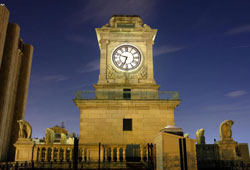A Kinetic History: The EAI Archives Online
A Kinetic History: The EAI Archives Online
Beginnings: Sponsored Projects
In 1971, Howard Wise founded Electronic Arts Intermix as a nonprofit organization to "explore the potentials of the electronic media as a means of expression and non-commercial communication." EAI's founding mission was to develop and support the emergent video medium by providing artists with access to funding, technology, and other resources. At its inception, EAI served as the umbrella for projects that included The Kitchen, the Annual Avant Garde Festivals, the first Women's Video Festival, the Open Circuits conference at MoMA, Computer Art Festivals, and the patenting and distribution of Eric Siegel's Video Synthesizers, among others. This eclectic mix of art, technology and theory reflects the alternative artistic and political impulses that drove the early video subculture. The support provided by EAI, coupled with the creative energy and radical experimentation of the programs, fostered a burgeoning community of electronic media artists. The sponsored projects were independently directed; several became autonomous once they had established stable sources of funding. The Artists' Videotape Distribution Service and the Editing/Post-Production Facility—projects initiated within EAI—were thriving by the end of the decade, and became the organization's core programs.
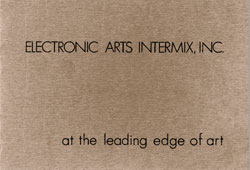
Founding Mission
In 1970, seeking to support projects in the emergent electronic arts movement, Howard Wise closed his New York gallery to found the nonprofit organization Electronic Arts Intermix (EAI).
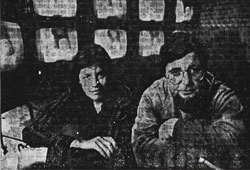
Perception
Launched as EAI's pilot program by Steina and Woody Vasulka, Eric Siegel, and Vince Novak in 1971, Perception was an ad-hoc artist's collective that explored the language and ecology of video as a form of art and communication.
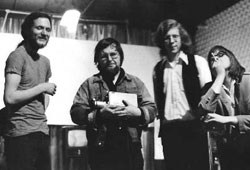
The Kitchen
On June 15, 1971, The Kitchen, a renovated space at the Mercer Arts Center at 240 Mercer Street, New York opened to the public, providing video practitioners with one of the first media spaces in which to present their work before a live audience.
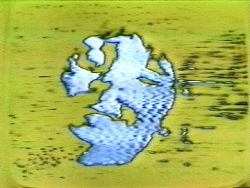
Vasulka Video
One of the first programs championed by Howard Wise in his manifesto, "At the Leading Edge of Art," Vasulka Video was a project directed by the pioneering electronic artists Steina and Woody Vasulka.
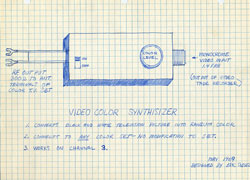
Eric Siegel's Video Synthesizers
In the early 1970s, artists played a significant role in shaping the language of the video medium through the development of new electronic imaging tools. Shortly after showing his Psychedelevision in Color in the "TV as a Creative Medium" exhibition at the Howard Wise Gallery in 1969, artist/engineer Eric Siegel, with assistance from Wise, began to develop two new video synthesizers.
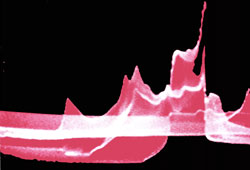
Computer Art Festivals
Organized by video artist and documentary filmmaker Dimitri Devyatkin from 1973 to 1975, the Computer Art Festivals were early forums for innovation in media art and computer technology
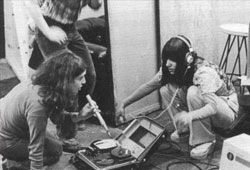
Women's Video Festivals 1972-74
The first Women's Video Festival, held at The Kitchen from September 14-30, 1972, represented a convergence of art, activism, videomaking and feminism. Steina Vasulka, an electronic art pioneer, had approached documentary filmmaker Susan Milano about organizing a festival of videotapes by women.
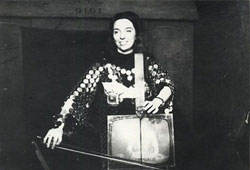
Annual Avant Garde Festivals
Led by the indomitable cellist and performance artist Charlotte Moorman, the Annual Avant Garde Festivals of New York began in 1963 as open forums for the experimental music scene that was emerging out of Fluxus. The first festival, held at Judson Hall, featured 28 composers, including such seminal figures as John Cage, Morton Feldman, and Edgard Behrman.
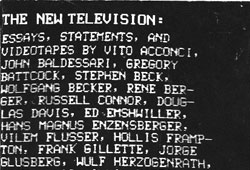
Open Circuits
The groundbreaking Open Circuits: An International Conference on the Future of Television, held at The Museum of Modern Art on January 23 and 25, 1974, gathered some 40 video artists, filmmakers, curators, arts administrators, critics and others to discuss the problems and prospects of artists' television and video.
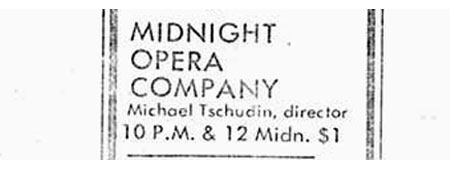
Midnight Opera Company
Directed by Michael Tschudin — the musical director of the Mercer Arts Center, in which The Kitchen was housed — and Cia Lozell, the Midnight Opera Company was a collective of musicians, singers and players who worked with electronic devices to create immersive video and musical environments.
